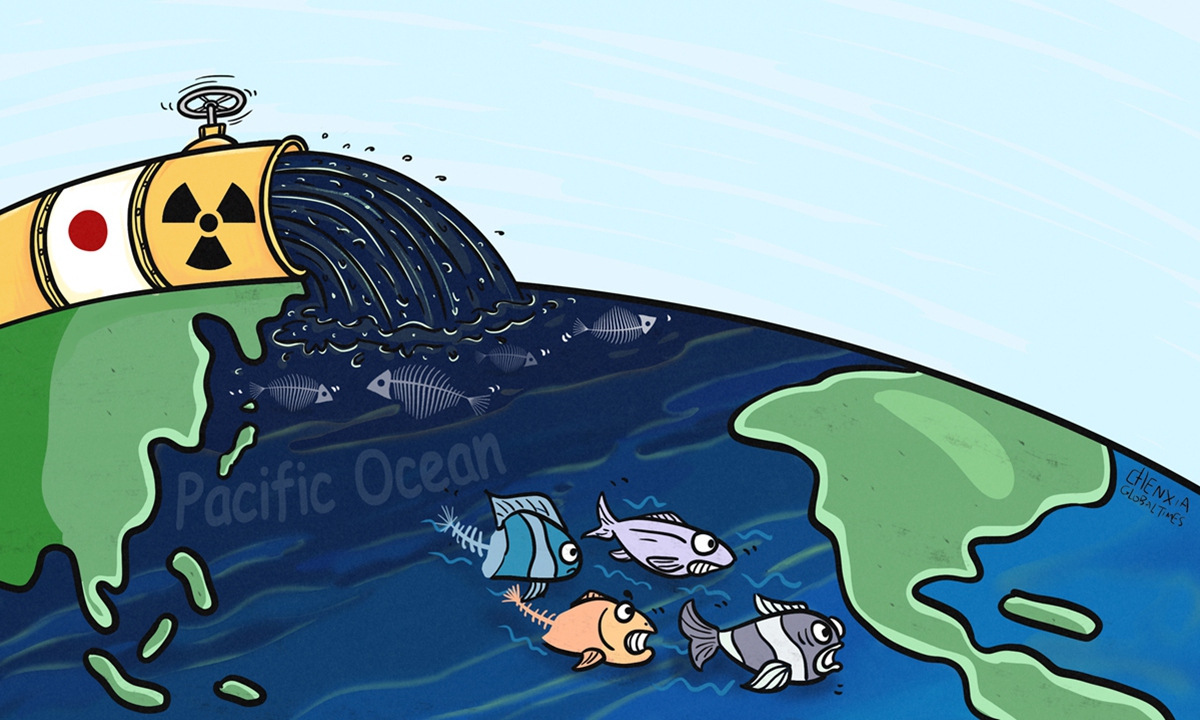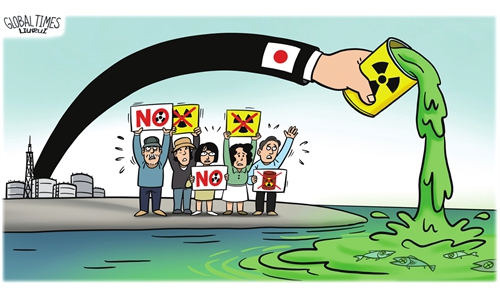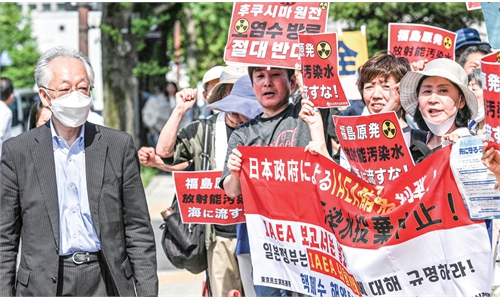
Illustration: Chen Xia/GT
As the Japanese government moves closer to opening a Pandora's box by dumping nuclear-contaminated wastewater into the sea, concerns over potential risks to the marine environment, food and human health are on the rise. Japan should seriously address common concerns of the international community and conduct adequate consultations with stakeholders. Failing to do so will draw stronger opposition, setting off a negative chain reaction that won't bode well for Japan.
In the latest response to Japan's dangerous plan, the Hong Kong Special Administration Region has strengthened inspections of vegetable imports from Japan, expanding the scope of tightened controls beyond seafood, the Jiji news agency reported on Wednesday.
Meanwhile, imports of food and beverage items from Japan, including confectionery and alcohol, are facing delays at customs clearance from some Chinese mainland authorities, raising concerns among Japanese exporters, according to Japanese media outlets. The Chinese mainland has announced a ban on food imports from Fukushima and tightened scrutiny of seafood shipments from other parts of Japan.
Such moves may be just the start of severe economic consequences Japan will have to bear for its selfish plan to dump nuclear-contaminated wastewater into the sea. If the Japanese government cannot properly address the legitimate concerns of the international community and stakeholders, and still insists on the dumping of nuclear-contaminated wastewater, a dramatic change in the regional food supply chain will be inevitable.
Japanese food products, which used to be considered healthy, will have to carry the label of nuclear contamination, facing the suspicious eyes of consumers around the world. Moreover, for a country that is very dependent on marine resources, it is not hard to imagine what kind of impact the discharging of radioactive wastewater over a 30-year timeframe will bring to the country's fishery resources, the livelihoods of fishermen and even the tourism industry. No one knows exactly what will happen to the global environment, food and human health.
For a long time, there has been opposition and questions about Japan's plan from around the world, including China, ASEAN, Pacific Island countries and others, which are likely to be the direct victims that will be surrounded by nuclear-contaminated waters due to geographical proximity.
In view of the serious and unpredictable consequences, Japan is supposed to conduct close consultations with the stakeholders to negotiate a solution to handle the nuclear-contaminated water in a scientific, safe and transparent manner. But unfortunately, it has only invested heavily in public relations, reportedly making political deals with the US, some European countries and international organizations, in exchange for their support for the dumping plan.
If anything, Japan's attempt to burden the international community with serious and unpredictable risks lays bare its selfishness and arrogance. According to research, radioactive materials in the contaminated water, which are highly toxic to marine life and the environment, will spread to the majority of the Pacific Ocean within 57 days of being discharged, and will continue to travel in waters across the world over the next decade.
Potential consequences could include - but not be limited to - a serious impact on the growth and reproduction of marine life, species extinction, and damage to human health through the food chain. The discharge of nuclear-contaminated wastewater into the sea is not a private matter for Japan, but a matter of common interest for the international community.
Japan can ignore its own food safety and the health of its people because of its unwillingness to spend money on safely treating the contaminated wastewater, but it cannot force other countries to condone such a selfish choice. How can other countries trust the Japanese government if it cannot even convince the Japanese people?


